What Oculus’s Marvel Partnership Means For Its Future
You might think that when you strap on an Oculus Rift headset in the privacy of your garage to play a game in virtual reality, you’re anonymous enough to do whatever you want, with no worries about being judged.
That’s not always the case, says Jason Rubin, vice president for content at Facebook-owned Oculus, the maker of the high-end Rift VR system.
With “multiplayer gaming in VR, you get some of the social anxiety you get in real life,” Rubin told me last month during a demo event for the forthcoming Marvel Powers United VR. “If you’re the kind of person who doesn’t like social interaction, [with multiplayer VR titles like] Echo Arena, you’re staring someone in the eye, or waving at them, and we notice that people who are shy get that shyness feeling.”
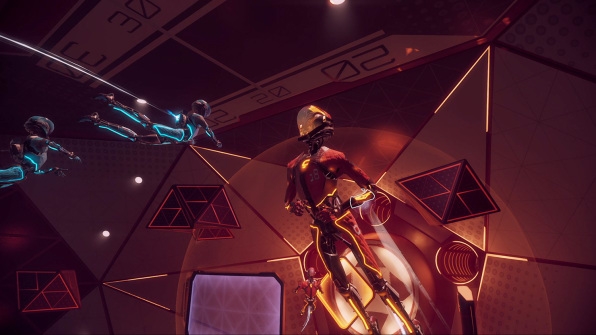
On the other hand, lots of people have no social awkwardness, and love interacting with others in real life, or in a virtual world. And that’s why it’s vital for the future of VR, and for the potential of big franchises like the Echo series or Marvel Powers United VR, that players be able to choose whether they strike out alone, or in a group.
Despite massive amounts of media coverage, and analyst predictions that it could be a $38 billion industry by 2026, VR is very much not yet a mainstream consumer technology. Adoption rates for leading platforms like the Rift, HTC’s Vive, Sony’s PlayStation VR, and mobile systems like Samsung’s Gear VR and Google’s Daydream, are low, with sales in the single-digit millions overall, and regular usage even among headset owners thought to be fairly low.
Given those kinds of numbers, one might ask why a company like Marvel, who Rubin says has some of “the best intellectual property on the planet,” would want to put its name on a high-profile game.
The short answer: To get in early, and iron out the problems now, when relatively few people are watching.
“If you own an IP, whether it’s Star Wars or the Avengers . . . or James Bond, or any one of these unlimited-value, giant universes of characters, what’s important to you is two things,” Rubin began.
First, you wouldn’t want to release something terrible with your name on it. The other is that you start to generate ongoing interest in your IP, and do things to move that IP forward over time.
That’s especially true when it comes to a nascent consumer technology like VR.
“I think if you asked a lot of these IP holders, they would say something along the lines of, ‘We think this is the first step in what’s going to be a very long road of bringing our IP, putting people in our IP, putting people in the universe of our IP,’” Rubin said. “‘If this only reaches hundreds of thousands of people . . . that’s okay, because a few years from now, we’ll reach millions, a few years after that, we’ll reach tens of millions . . . We believe that this is an important way that our IP can move forward, and therefore what we want to do is we want to learn [now], so we’re not learning when everybody else knows what to do, and we’re trying to shoehorn our IP in when everybody else has worked out the kinks.’”
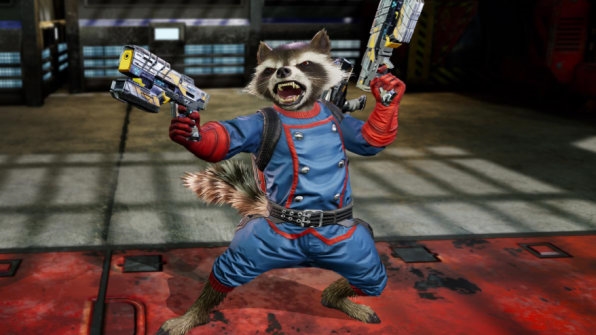
For Oculus, having a Marvel title in its library was on the wish list from the very beginning. And while the two companies began to talk quite some time ago about what was possible, it was a hard sell.
“They were somewhat unconvinced at the beginning,” Rubin recalls. “You know, VR is new, is this something they want to do? They’re very precious about their IP.”
Still, Oculus kept asking, and kept hearing no. Until, that is, the developers at Sanzaru Games took it upon themselves to put together, on spec and on their own dime, a playable demo of a game featuring Marvel’s characters.
“We went to Marvel, and they went, ‘You keep asking, we’re just not sure,’” Rubin said, adding that Oculus then showed Marvel the Sanzaru demo, prompting an enthusiastic reply: “‘Oh, yeah, we’re building this.’ And that’s literally how it went.”
Why? Rubin points to the amount of people dressed as Marvel characters like the Hulk, or Rocket Raccoon, or Deadpool, at events like Comic-Con, and the way that VR can let you embody someone like the Hulk in a way that’s impossible with any other medium. “People love these characters,” he said. “Cosplay aside, you don’t really get to be that character in a world. This is a first. This is something no other medium can give you.”
And what, exactly, is it that VR offers that’s unique–especially when it comes to playing a game based on Marvel’s characters?
I had just finished running through the demo version of Marvel Powers United VR, making it through an intense few minutes fighting bad guys alongside the Hulk and Rocket Raccoon. I was Captain Marvel.
I had been human-sized, and the Hulk had towered above me. It was inescapable. “When you play as Rocket Racoon,” Rubin enthused, “and you look up at the Hulk, you feel like an ant. You feel tiny.”
Similarly, he said, comparing playing a VR game to a standard, console game, “when you’re sitting doing this, very passively [with a console game], you’re not moving much. But when you slash a sword with Deadpool [in VR], you slash a sword. It’s an entirely different feeling, and I think Marvel reacted to that, and thought that this is something that their fanbase would like.”
Oculus’s Role
Despite its July unveiling, Marvel Powers United VR won’t be available until next year. Until then, Oculus will play the role of producer, stepping in when necessary, but mainly taking a backseat as Marvel and Sanzaru work closely on the game’s development.
Marvel’s heavy involvement in production is mainly due to how much it cares about its characters being properly represented.
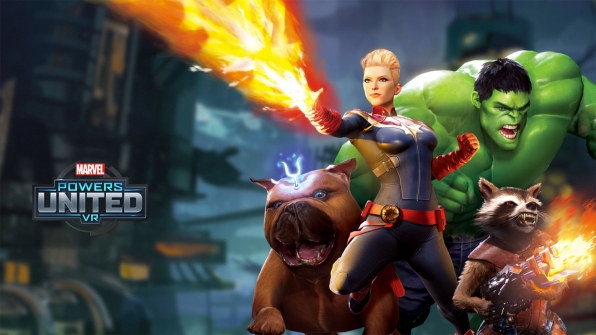
And in that sense, the production of Marvel Powers United VR is quite different than that of other games for the Rift, Rubin explained.
With the Echo franchise–Lone Echo and Echo Arena–Oculus’s role is much more hands-on, working with the game’s developer, Ready at Dawn Studios. In addition to funding the games, Rubin said, Oculus is talking to the developers daily, bringing them best practices and helping out when needed.
“There’s times, not with that team, but with other teams, where we’ve said, ‘Okay, you’re going astray,’ and we’ve pushed them back in,” Rubin said. “We have a very active production role, in the same way a producer produces a movie. The director is ultimately responsible for what you see on the screen, but there are many times when the director or the production go off track, and it’s the producer . . . who comes in and pulls it back onto the schedule.”
And, of course, there’s another production model. An example is Ubisoft’s Star Trek Bridge Crew. “We had no hand in building that product,” Rubin said. “We were aware of it. We helped them with technical issues . . . But that was Ubisoft and the [Star Trek] rights holder working on their own.”
Added Rubin, “That game has been an incredible success story for our platform.”
Reassuring Consumers
Regardless of who makes a Rift title, or what the production model is, it’s essential to the platform that there is as much quality content as possible.
There’s also, of course, a bit of a chicken-and-egg dynamic. Modest Rift ownership means developers are somewhat wary of building for the platform. Users may, in turn, be somewhat wary of buying a Rift because they’re unsure there’s enough to keep them entertained.
That dynamic, in part, led to Oculus’s so-called Summer of Rift, during which much of the 500 Rift titles have been on sale, and more importantly, the price of the hardware itself was slashed.
In early July, Oculus announced a six-week sale, dropping the cost of a Rift and Touch controllers bundle to $399. Not long after, it said the post-sale price would be $499, $100 less than what it was pre-sale.
And while Oculus and its partners are already in development on games that will boost the platform’s content roster in both 2018 and 2019, that doesn’t matter to consumers, Rubin acknowledged.
That’s why it’s so important to the company that people know about a high-profile title like Marvel Powers United VR.
“For consumers, they say, ‘What product? What are you talking about? I want to know because I’m putting my own hard-earned cash into buying this hardware,’” Rubin said. “So by saying something along the lines of, It’s Marvel Powers, it’s coming in ’18, it’s real, you give somebody the ability to say, ‘Okay, I get it now. Here are all the things I know are coming . . . I’m looking into the future, and I’m saying at $399, at $499, this is a deal worth it to me, because, over the next two years, I’m going to get the value added.’ That’s how consumers think.”
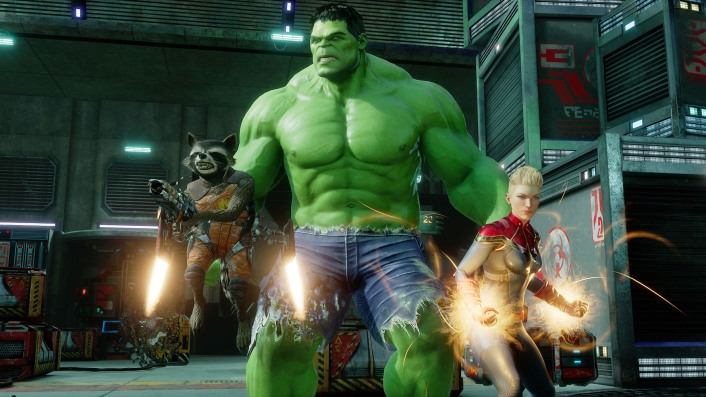
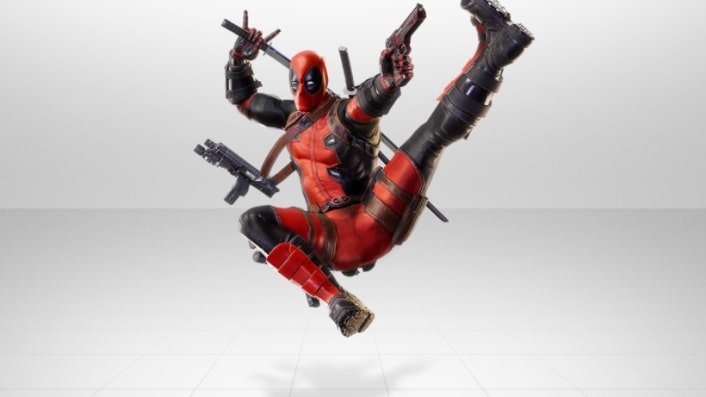
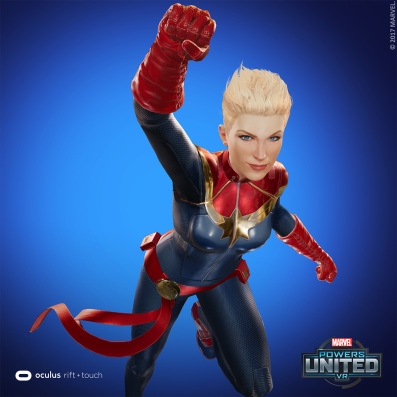
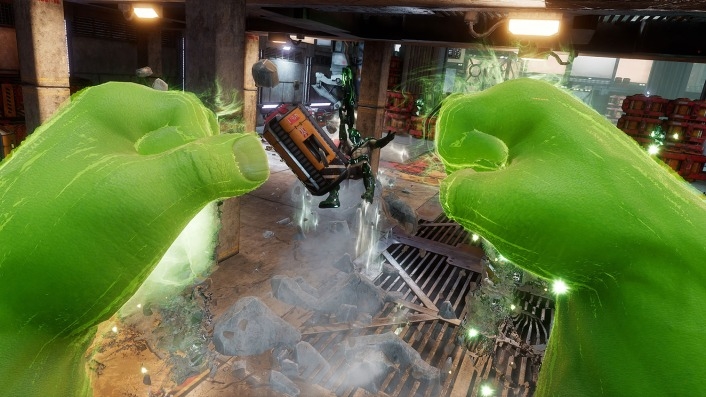
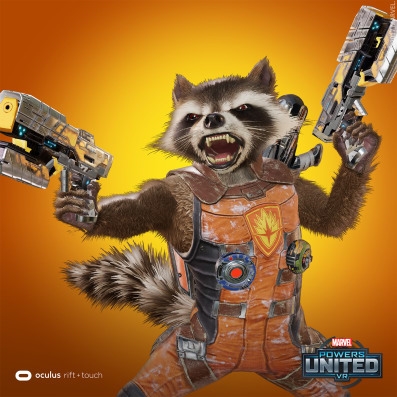
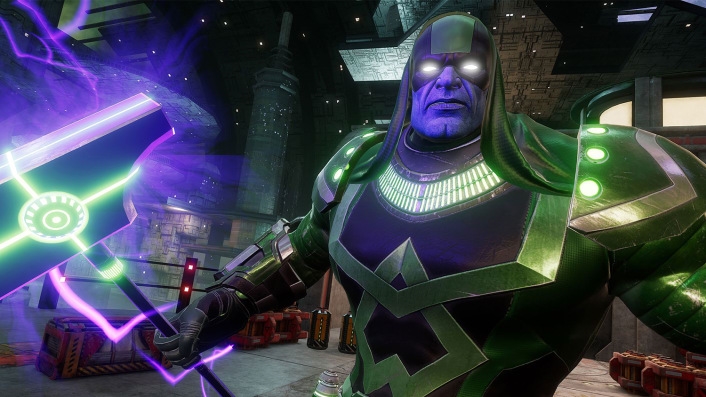
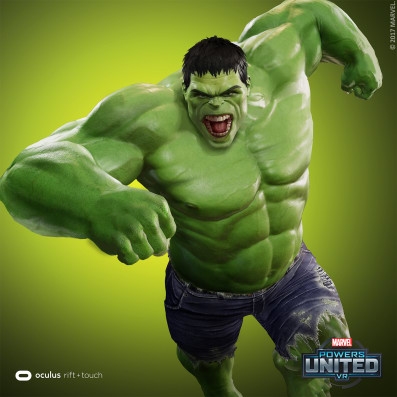
(29)












